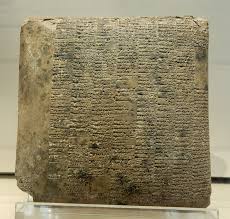Bank is the financial system and the national economy . Banks are highly regulated in most countries . Most countries have instituted a system known as fractional reserve banking , in which banks hold only a small reserve of funds deposited and lend the remainder to profit
Banks acting as paying agent by checking or current accounts for customers , paying checks drawn by customers on the bank , and collecting checks deposited to customers' current accounts . Banks also enable customer payments via other payment methods such as Automated Clearing House , Wire transfer or telegraphic transfer , and automated teller machines
Banks borrow money by accepting funds deposited on current accounts , by accepting term deposits, and by issuing debt securities such as bonds and bills . Banks lend money by making advances to customers' current accounts , by making installment loans , and by investing in debt securities and other forms of money lending .
Banks provide different payment services , and a bank account is considered indispensable by most businesses and individuals .
Banking, history in Mesopotamia
Banking is thought with some certainty, to have begun during the period of the the third to second millenia B.C. in Mesopotamia. During Assyrian and Babylon kingdoms, there are records of loans dating back to the 2nd millennium BC that were made by temple priests/monks to merchants.

Both the palaces and temple are known to have provided lending and issuing from the wealth from which was held by these establishments, although the palaces to a lesser extent. In reality such loans amounted to affect the issuing of seed-grain to which re-payment was to be made when the harvest allowed. Still these basic social agreements were never-the-less documented in tablets of clay, together with an agreement of the accruing of interest. A very early writing on clay tablet called the Code of Hammurabi, refers to the regulation of a banking activity of sorts within the civilization, during the era, dating to ca. 1700 BCE, banking was well enough developed to justify laws governing banking operations.Later during the Achaemenid Empire, further evidence is found of banking practices in the Mesopotamia region.
History of banking
Banking begins with the first prototype banks of merchants of the ancient world that made grain loans to farmers and traders carrying goods between cities; recorded as having occured at about 2000 BC within the areas of Assyria and Babylonia. Later on, in ancient Greece and during the Roman Empire, lenders based in temples made loans and added two important
innovations: the accepting of deposits and the changing of money. Archaeology from this period in ancient China and India, shows the existence also of money lending activity.
Banking, in the modern sense of the word, can be traced to medieval and early Renaissance Italy, to the rich cities in the north such as Florence, Venice and Genoa. The Bardi and Peruzzi families dominated banking in 14th century Florence, establishing branches in many other parts of Europe. Perhaps the most famous Italian bank was the Medici bank, established by Giovanni Medici in 1397.
The development of banking spread through Europe also and a number of important innovations took place in Amsterdam during the Dutch Republic in the 16th century and in
London in the 17th century. During the 20th century, developments in telecommunications and computing resulting in major changes to the way banks operated and allowed them to dramatically increase in size and geographic spread. The Late-2000s financial crisis saw significant number of bank failures, including some of the world's largest banks, and much debate about bank regulation.

